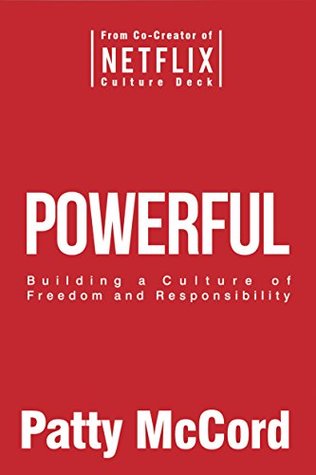More on this book
Community
Kindle Notes & Highlights
by
Patty McCord
Read between
June 21 - July 6, 2019
the core competencies we looked for: courage.
Beware of data masquerading as fact; data is only as good as the conclusions it allows you to draw from it.
Build the Company Now That You Want to Be Then
“Are we limited by the team we have not being the team we should have?”
This exercise often exposes problems in readiness regarding multiple changes to come, often changes that are rapidly closing in.
This will help you see the skills and experience of your team more accurately.
use the metaphor that the company was like a sports team, not a family.
We set the mandate that their decisions about whom to bring in and who might have to go must be made purely on the basis of the performance their teams needed to produce in order for the company to succeed.
the ability to take a dysfunctional team and make it highly well functioning.
But nostalgia that inspires resistance to change will fuel discontent and often undermine growth.
First, the responsibility for hiring great people, and for determining whether someone should move on, rested primarily with managers. Second, for every job, we tried to hire a person who would be a great fit, not just adequate.
First Round Review about his specific tactics for hiring great people, “This Is How Coursera Competes Against Google and Facebook for the Best Talent,”
how to do great sourcing and interviewing; how to close the deal with candidates; how to evaluate when to part ways; and how to talk about the decision not only to that person but also to the rest of the team.
it’s best for both them and their companies if the reason they’re happy is that they’re doing great work with great people.
more important than the match of a person’s prior experience was the match of their approach to problem solving.
Candidates are evaluating you just as you’re evaluating them; people forget that.
“What business metric is directly affected by the completion of the annual performance review?”
It’s better to focus more on what you can afford to pay for the performance you want and the future you’re heading to.
the value the person will generate for you,
Companies should not be reluctant to explain their compensation rationale.
practice open dialogue about salaries and the philosophy behind them.
people are being paid based on their actual contributions,
tying pay to performance,
coaches are letting the rest of the team and the fans down if they don’t replace players who aren’t producing top performance.
When performance issues arise, the sooner you address them with people, the better they will be able to see what they’re not doing well enough and make corrections.
RIP the PIP
It’s not personal and it’s not about failure. It’s about aligning skills and know-how with the team objectives.
The key is to be realistic about how likely it is that significant improvement can be made.
What is essential, instead, is to coach not only managers but all employees that they are expected to communicate openly about issues they are having with one another.
That commitment to achievement is what we want to foster, not the expectation that as long as you’re working hard, the company will have your back.
We should not make false promises of job security.
disempowering, dispiriting, and corrosive,
VP of HR Jessica Neal about this, she said a great thing about what a company’s culture should be: “Culture is the strategy of how you work. And if people believe it is a strategy and that it is important, they will help you think about it deeply and try things.”
“You can’t do it all at once; you have to pick where you want to start, prioritizing just as you do with the rest of the business.”
Another foundation of successful culture change is honesty about the challenges and the nature of progress along the way.
Keep reminding yourself that people have power. It’s not your job to give it to them.
In Gratitude


